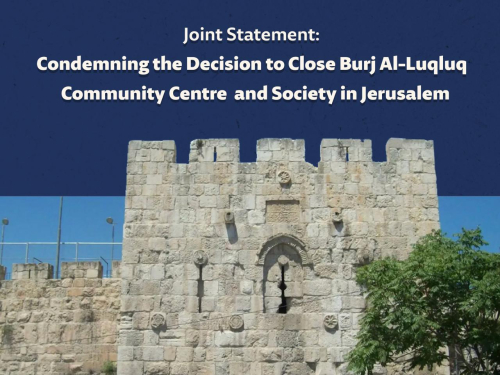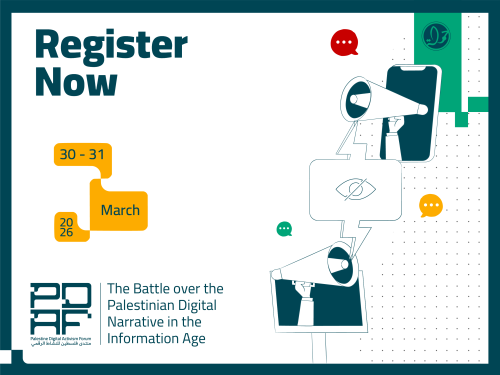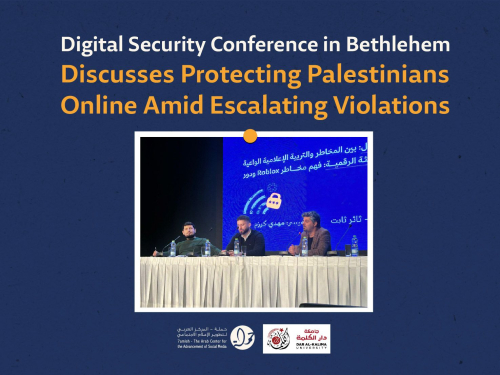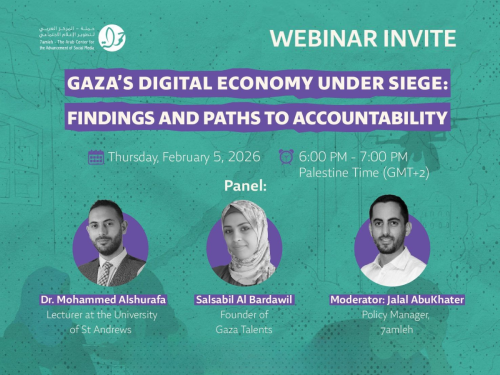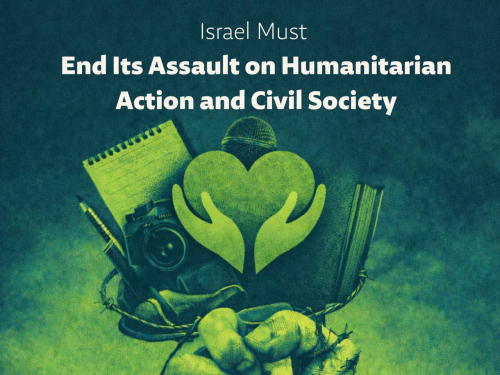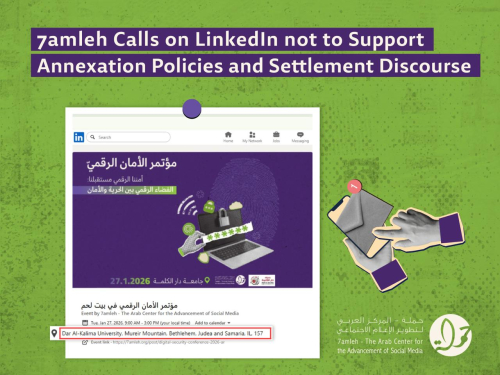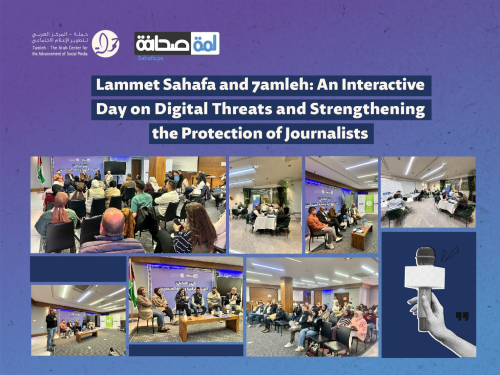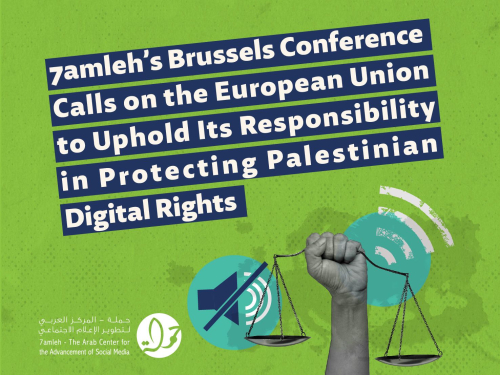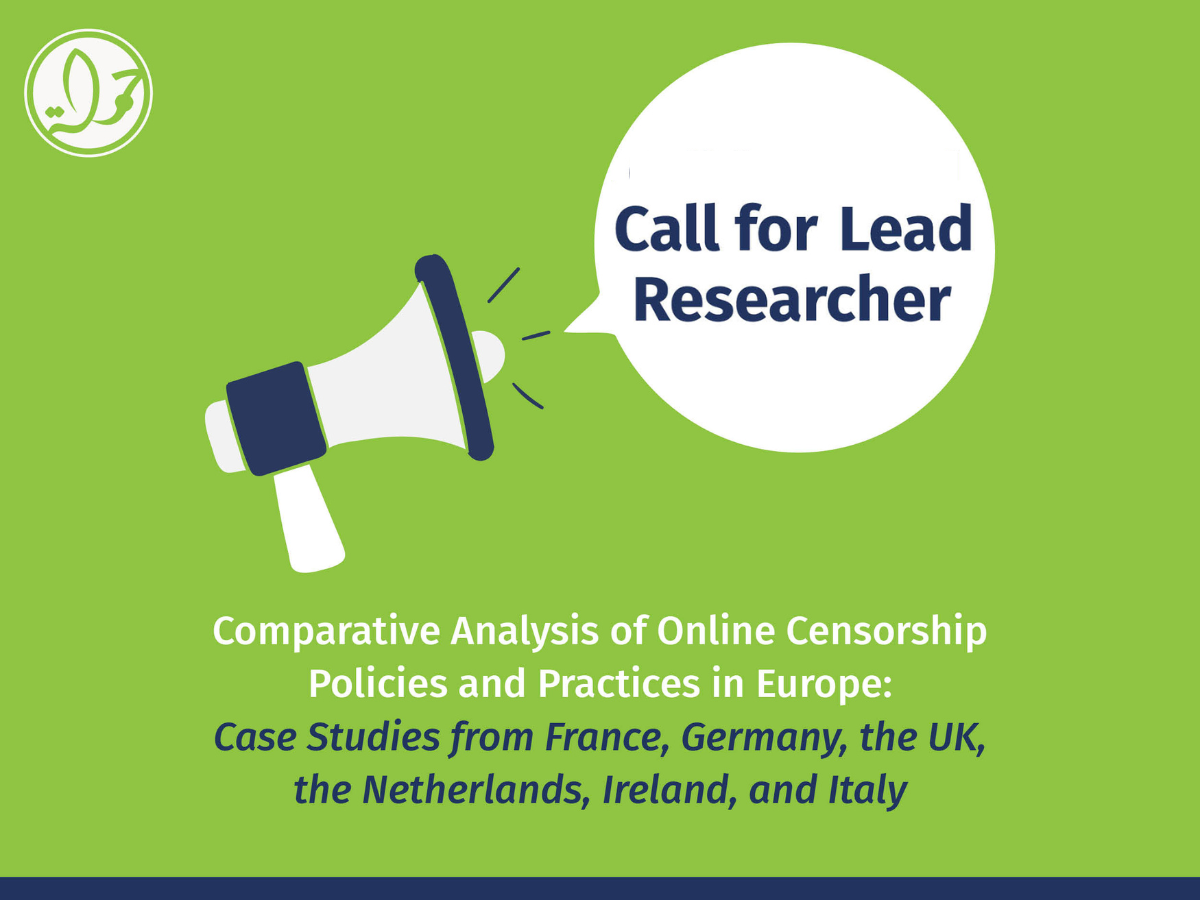
Call for Lead Researcher
Comparative Analysis of Online Censorship Policies and Practices in Europe: Case Studies from France, Germany, the UK, the Netherlands, Ireland, and Italy
Background
Palestinian narratives and expressions of solidarity are increasingly subject to online censorship across European platforms. Reports from civil society and digital rights organizations suggest a growing trend of content takedowns, shadow banning, account suspensions, and algorithmic suppression targeting content related to Palestinian rights, political critique of Israel, or pro-Palestinian mobilizations. These trends raise serious concerns about the shrinking of civic space online, particularly as European governments and platforms implement new regulations around harmful content, misinformation, and extremism.
Given the evolving regulatory environment such as the implementation of the EU Digital Services Act (DSA) and national content moderation laws, there is an urgent need to assess how Palestinian content is being treated across jurisdictions, and how policy, law, government requests and platform enforcement intersect to suppress or enable online expression.
Objectives
-
Document how Palestinian-related content is moderated on major digital platforms in six European countries.
-
Analyze relevant national laws, policies, and regulatory frameworks affecting freedom of expression online.
-
Compare patterns of censorship, enforcement, and civic responses across countries.
-
Identify the roles of platforms, state institutions, and civil society in enabling or resisting censorship.
-
Provide actionable recommendations to EU and national stakeholders, civil society actors, and platforms to safeguard Palestinian digital rights and freedom of expression.
Scope of Work
The selected researcher(s) will:
-
Conduct a desk review of national laws, regulatory instruments, and platform enforcement reports in the selected countries.
-
Analyze past and current incidents of censorship of Palestinian content (e.g. takedowns, deplatforming, restricted reach).
-
Conduct semi-structured interviews with digital rights experts, journalists, civil society actors, and affected users.
-
Map the interaction between national laws and platform governance on issues of Palestinian expression.
-
Develop a comparative framework to evaluate divergences, convergences, and best practices.
Methodology
-
Desk Research: Review legal frameworks, platform policies, NGO reports, and academic literature.
-
Comparative Legal Analysis: Focused on national policies on content moderation, hate speech, terrorism, antisemitism laws, and their application to Palestinian-related content.
-
Case Study Compilation: Identify and document censorship cases across the six countries.
-
Stakeholder Interviews: Conduct approx. 3–5 interviews per country with affected users, advocacy groups, legal experts, and content moderators.
-
Platform Data Analysis: Leverage transparency reports, takedown statistics, and, where possible, prior scraping or database research already conducted.
Deliverables
-
Inception Note (Month 1): Methodology, timeline, and interview guide.
-
Country Briefs (Months 2–3): Short analytical notes on each country’s legal/policy context and censorship trends.
-
Draft Comparative Report (Month 4): Including key findings, trends, and preliminary recommendations.
-
Final Report (Month 5): Full analysis (approx. 40 pages), with an executive summary, recommendations, and annexed case studies.
-
Policy Brief (Month 6): A concise, action-oriented brief (3–5 pages) for advocacy and public dissemination.
-
Presentation: Report to be launched during the Brussels convening beginning of December, including Q&A with stakeholders.
Timeline
|
Deliverable |
Deadline |
|
1.Inception Note (methodology, scope, initial list of legal instruments and cases) |
By July 15 |
|
2.Annotated Case Notes (with legal/policy framing) |
By August 30 |
|
3.Draft Report (~25 pages + annexes) |
By October 1 |
|
4.Final Report (revised, with executive summary) |
By October 20 |
|
4.Policy Brief (3–5 pages) |
By October 31 |
The final outputs will be launched during the Brussels convening in early December 2025.
Profile of the Researcher
-
Proven expertise in digital rights, freedom of expression, or content governance.
-
Familiarity with Palestinian digital rights or broader MENA-related advocacy.
-
Experience conducting comparative research in European legal/policy contexts.
-
Strong research, writing, and stakeholder engagement skills.
-
Fluency in English required; knowledge of other relevant languages (French, German, Dutch, Italian) an asset.
Supervision and Coordination
The project will be managed by 7amleh, which will provide strategic guidance, facilitate stakeholder contacts, and support the dissemination of findings. One Lead Researcher will be responsible for the coordination of the report across the different countries being analyzed and one country will have a research assistant for data collection and desk research.
Submission of Proposals
Interested researchers or research teams are invited to submit a price offer/proposal, including a brief background, relevant samples of previous work, and a CV or organizational profile.
Please send your proposal to Jobs@7amleh.org, citing “Comparative Analysis of Online Censorship Policies” in the subject line, no later than July 1, 2025.
Related Articles
Subscribe to Our Email Alerts
And stay updated with our latest activities, news, and publications!

